2022 International Education Week
A week of virtual events.
The AASCU China Partnerships and Education Expo is designed to support AASCU’s senior leaders in a bid to internationalize their campuses, by inviting them to participate in in a series of activities designed to create and sustain educational partnerships in China.
Learn more.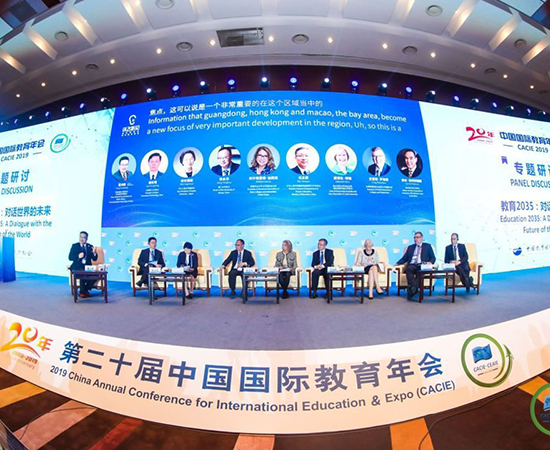
For the past 18 years, AASCU has supported member institutions in a bid to internationalize their campuses, by taking senior leaders to China to participate in a series of activities designed to create and sustain educational partnerships with Chinese institutions.
This initiative represents an extraordinary opportunity to be introduced to or deepen understanding of partnerships in China.
This initiative in China, includes access to, and participation in the China Annual Conference and Expo for International Education (CACIE), hosted by AASCU’s longtime Chinese partner association, the China Education Association for International Exchange (CEAIE). Participants are encouraged to take advantage of the EXPO that attracts over 50,000 Chinese students interested in education abroad.
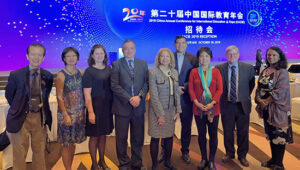
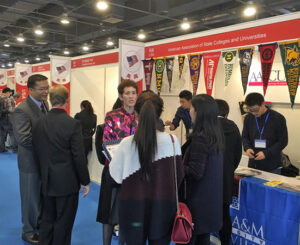
Education B2B offers a global networking platform for all individuals participating in the China Annual Conference and Expo for International Education (CACIE). AASCU assists its members in registering and preparing for B2B sessions, as they are quite popular with individuals who are eager to develop partnerships, explore potential cooperation, and build pragmatic collaborations.
The China Education Expo features over 600 booths, representing institutions from countries around the world. AASCU offers a complementary booth shared by all member institutions participating in the conference. We encourage members to distribute materials and use this opportunity to meet with Chinese students interested in studying in the United States. The booth is primarily used to raise the awareness of Chinese students about AASCU institutions.
Number of years AASCU has provided this opportunity for its members.
Number of institutions that have participated in this initiative.
Number of institutional leaders that have participated in this initiative.
"*" indicates required fields
Work with AASCU’s staff to secure a scholarship award for short-term or long-term study in China.
Apply today.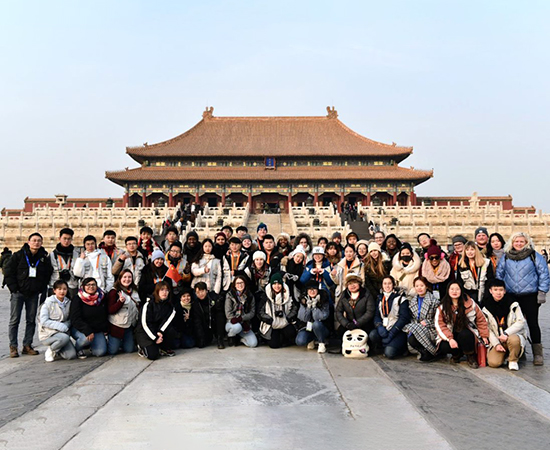
The AASCU-designated Chinese Government Scholarship is a scholarship program offered by the Embassy of the People’s Republic of China and administered by the American Association of State Colleges and Universities (AASCU). The program provides support to students enrolled at AASCU member institutions, as they prepare to study abroad in China. The scholarship is designed to sponsor students interested in short-term or long-term study, at over 250+ designated Chinese universities.
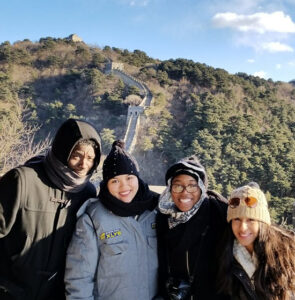
AASCU designated scholarships available annually.
Number of years AASCU has partnered with the Embassy of the People’s Republic of China to select students specifically from AASCU institutions.
Students who have received AASCU designated scholarships.
The scholarship allows students to study the Chinese language and/or other available academic subjects taught in English for either one semester or one academic year. Applications are accepted through January 31 each year. Applications will be reviewed by the Selection Committee organized by the Chinese Embassy and recommended to CSC for approval.
The scholarship amount, which is valued at approximately 10, 000 USD, offered by China Scholarship Council (CSC), is disbursed to the Chinese universities, not to the individual student. Applicants awarded this Chinese government scholarship, are not allowed to simultaneously receive other scholarships provided by Chinese universities or Chinese local governments.
Candidates are encouraged to apply to the AASCU recommended Chinese partner universities listed below in the Resource Section.
More detailed information about the scholarship can be found on the China Scholarship Council’s website.
Applications are open until January 31.Applicant must be:
The scholarship covers the following expenses for each participating student:
The scholarship does NOT cover:
For more questions throughout the Application procedures, please contact Sufei Li.
"*" indicates required fields
Presidential Missions facilitate and promote connections between AASCU member institutions and their international peers to develop and enhance institutional collaboration and problem-solving.
Learn more.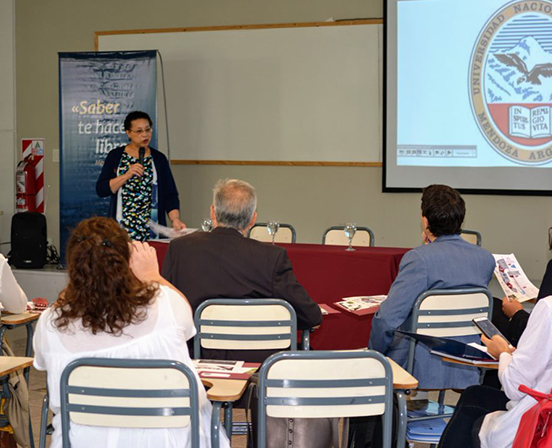
Since 2003, AASCU has sponsored presidential missions to various countries to encourage member institutions in the development of their international initiatives and global programs. This is one of the pathways AASCU pursues in fulfilling its strategic goal of educating global citizens.
These in-country programs for U.S. presidents lead to partnerships with colleague institutions in the mission host country. The outcomes have included faculty and student exchanges, and other types of program collaboration. These personal and professional experiences assist presidents in reframing their global learning programs, and strategic international initiatives.
Since its inception, this initiative has facilitated Missions to Argentina, Brazil, Chile, Cuba, Hungary, Jordan, Morocco, Oman, and South Africa.
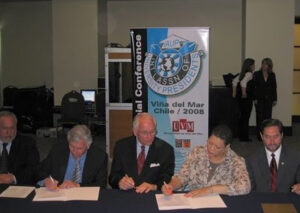
"*" indicates required fields
The China-U.S. Rising Star Student Study Tour is a study abroad opportunity for students interested in Chinese language and culture, strengthening their global competencies, and improving their professional capacity, by exploring options for potential international academic and career pathways.
Learn more.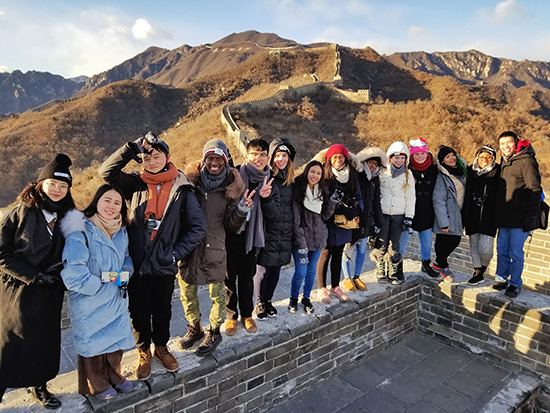
The China-U.S. Rising Star Student Study Tour program is created for students who are particularly interested in a guided, short-term study abroad option. The program is specifically designed to support students in their aim to strengthen cross-cultural communication skills, improve various aspects of their professional capacity, while exploring and expanding options for potential academic and career pathways in China. The program activities are designed to facilitate an immersive cultural experience, foster experiential learning, and encourage dialogue and cooperative learning between Chinese and American students.
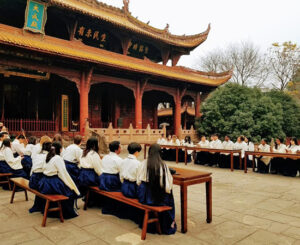
The study tour is a flagship student exchange program under the framework of the China-U.S. High-level Consultation on People-to-People Exchange (CPE) in the sector of vocational education. AASCU’s International Education Office, as co-sponsor of this initiative, along with the China Education Association for International Exchange (CEAIE) selects students from its member universities to experience two weeks of intensive training in a thematic area, and study across several Chinese cities and host Chinese vocational institutions. Past programs have engaged students in the specific areas of robotics, business and entrepreneurship, aviation, architecture, and e-commerce.
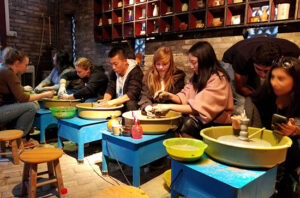
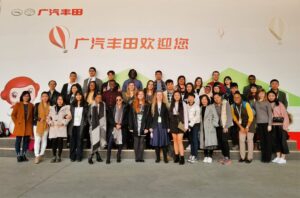
Number of years AASCU has offered this opportunity to students at its member institutions.
Number of students participating in a study abroad experience for the first time,
AASCU institutions engaged.
"*" indicates required fields
AASCU offers member universities the opportunity to collaborate with our International Education team, to assess their level of internationalization, through thorough reviews of programs, policies and assist in envisioning next developmental steps.
Learn more.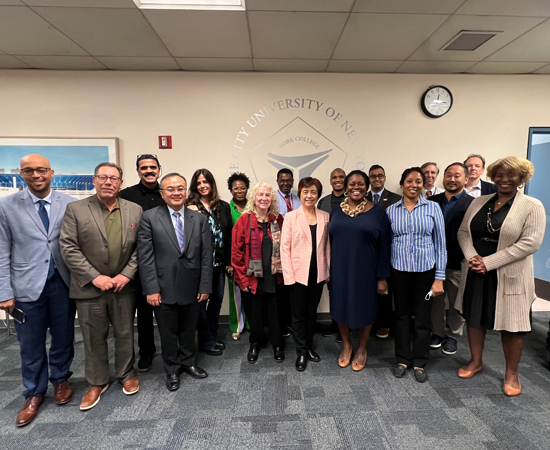
Campus consultations provide quality professional evaluation of member campuses’ comprehensive internationalization processes. Each visit consists of a multi-day assessment of the member institution’s current internationalization strategy and specific programs. During the visit, the IE team meets with campus senior leadership and stakeholders to observe, review and recommend strategies to advance the institution’s global programming.

"*" indicates required fields
AASCU’s International Education Week is a collaborative initiative between AASCU, its members and partners, in an effort to highlight and promote programs that prepare students for a global environment.
Share your story.
During International Education Week each year, join our virtual programming, as we focus on highlighting initiatives and partners assisting AASCU institutions in developing innovative programs and sustainable partnerships that build institutional capacity in the areas of student success, global diplomacy, and comprehensive internationalization. The week’s activities feature faculty, staff and students from AASCU institutions whose campuses are doing innovative and exemplary work in these areas.
Nov. 19-21, 2024
Three days of virtual events
Webinar
More information.Nov. 13-17, 2023
A week of virtual events
Webinar
More information.
"*" indicates required fields
A week of virtual events.
118 student participants arrived on AASCU’s member campuses in January 2023.
This award program is jointly administered by AASCU and the Embassy of China.
The team from USA has been working with AASCU on China-related programming.
Notifications